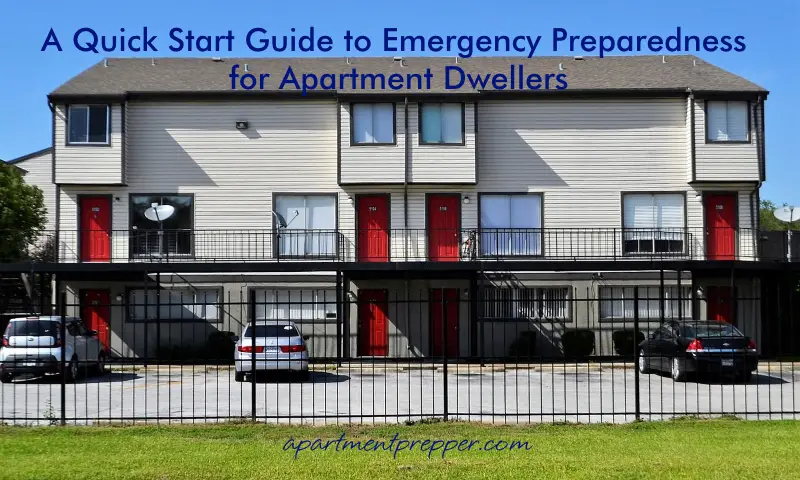This post is by Bernie Carr, apartmentprepper.com
If you live in an apartment and want to prepare for a disaster, you may initially feel overwhelmed by everything that needs to be done, and the feeling worsens when you hear about what other people are doing and you haven’t even started yet.
Don’t let all this worry get you down; the most important thing to do is to get started. Whether you live in a small apartment or a small home, there is always a way to prepare regardless of your lack of space. Just focus on a few things at a time.
Here are a few tips to get started:
- Focus on the basics. You need water and food to survive, so focus on those first. Each time you go to the grocery, pick up extra gallons of water, and extra cans of food that your family likes. You need one gallon of water per person per day. Pick up foods that do not need heat to be edible: canned pasta, tuna, canned fruit and vegetables, cereal or granola bars etc. If you have babies, make sure you pick up extra formula. Keep going until you have at least two weeks worth of water and food.
- Buy enough toilet paper and other sanitation items (diapers, trash bags, sanitary napkins etc) to last for two weeks. Toilet paper is a necessity, so don’t put this off. Pick up disposable plates, cups, and utensils, so you don’t have to use dishes in an emergency.
- Assemble a First Aid kit or buy a prepackaged First Aid kit. There are several available-I picked up a fairly large one at Sam’s for under $20. Add medications or prescriptions your family normally uses.
- Stash emergency cash in case ATMs or debit cards doesn’t work. The amount is whatever you think the family would need for a few days. Start with just $20, and keep adding to it.
- Pick up battery-powered flashlights, radios, and extra batteries, and store them within easy reach in case power goes out.
- If you have a space issue, get creative with your storage. You don’t have to store all food and water in the pantry. Store your stash in a closet, under the bed, or behind the couch. Just keep track of where you store things, so nothing gets forgotten.
- Make copies of your important documents: licenses, ownership statements, 401k statements etc and keep them in a binder.
This is not a complete list by any means, just a few steps to take as a fast track way to get started. Once you have a few supplies set aside, you will feel encouraged by the feeling of security you get, knowing that you are taking steps to prepare yourself and your family.
Please check out our video below: Quick Start Guide to Emergency Preparedness for Apartment Dwellers
Give the gift of prime:
